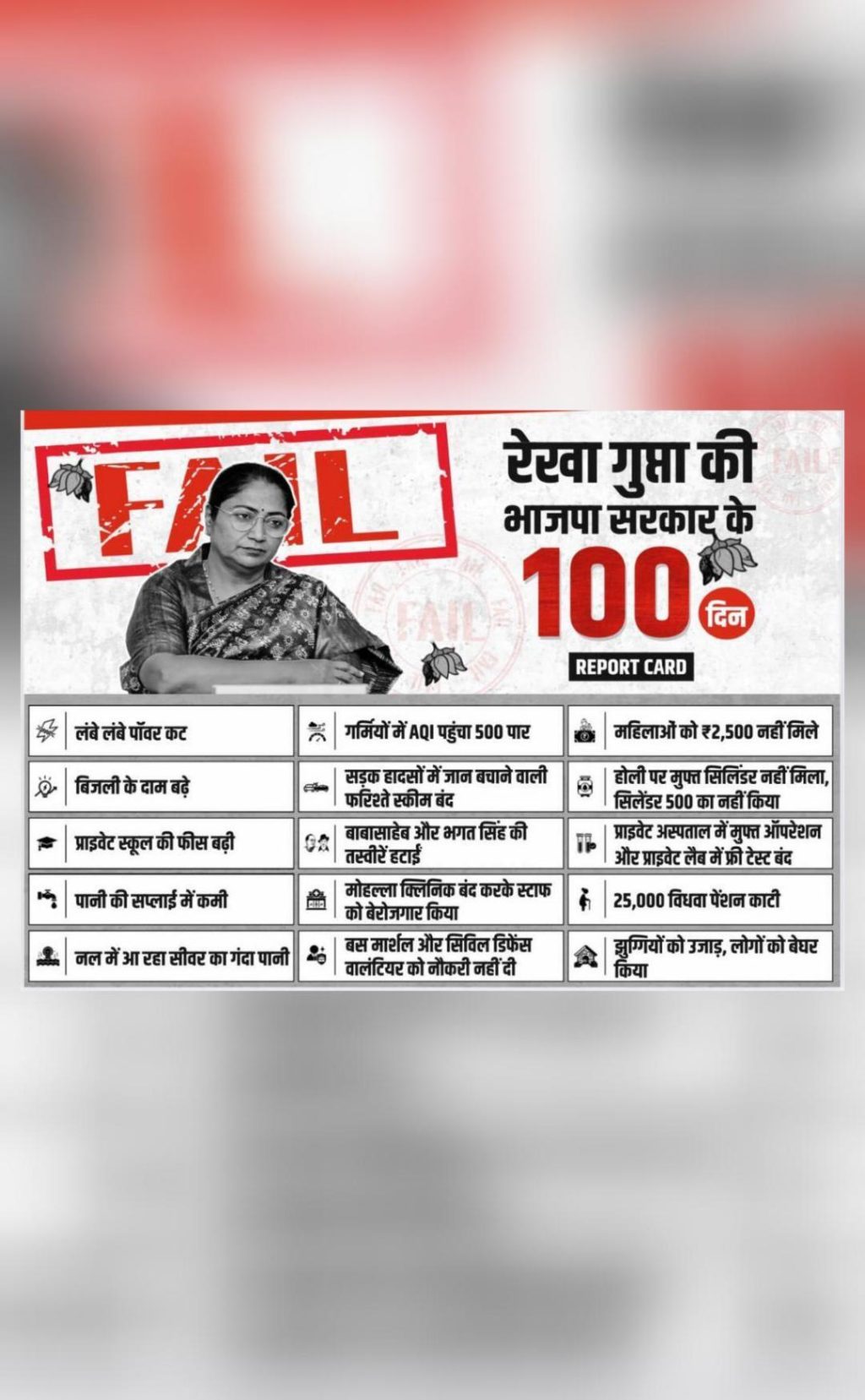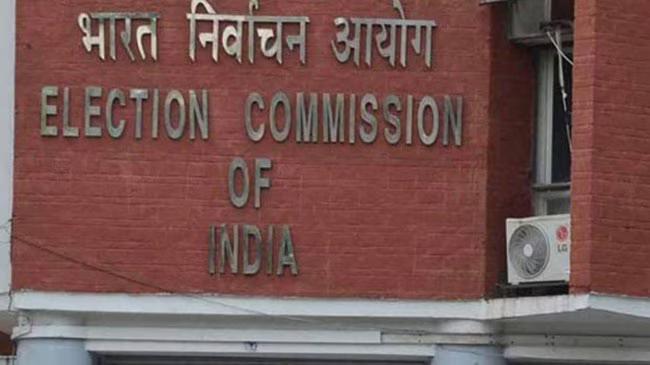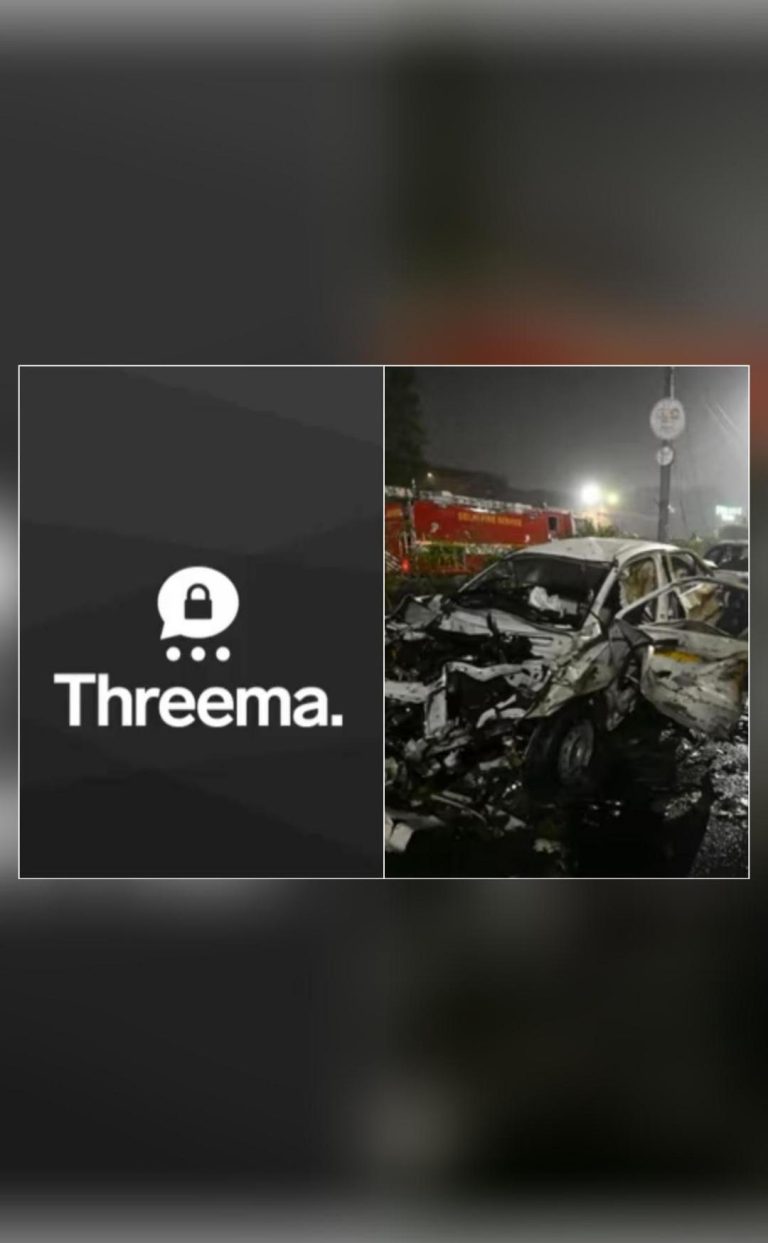
AAP Presents Report on BJP’s 100-Day Rule in Delhi, Says it Failed
The Aam Aadmi Party (AAP) has finally released its 15-point report card on the BJP’s 100-day rule in Delhi, and the verdict is not flattering. The report highlights a series of civic issues and broken promises, painting a dismal picture of the state of the city under the BJP’s governance.
The AAP’s report card, presented by its leader Atishi, is a scathing critique of the BJP’s performance in the capital city. It highlights several key concerns that Delhiites have been facing since the BJP took over the reins of the city. Among the many issues, frequent and prolonged power cuts, a hike in electricity charges, rising private school fees, a severe water crisis, and worsening air quality are some of the major concerns that AAP has highlighted.
The report card is a detailed analysis of the BJP’s performance in various sectors, including education, healthcare, infrastructure, and governance. It presents a stark contrast between the promises made by the BJP during the election campaign and the reality of the situation on the ground.
One of the most pressing concerns highlighted by AAP is the issue of power cuts. The report states that the BJP has failed to address the problem of frequent and prolonged power cuts, which have become a norm in many parts of the city. The report claims that the power cuts have not only caused inconvenience to the people but also resulted in significant losses to businesses and industries.
The AAP report also highlights the issue of rising private school fees. The party claims that the BJP has failed to address the issue of rising private school fees, which has made it difficult for many parents to afford quality education for their children. The report states that the average annual fee of private schools in Delhi has increased by over 20% since the BJP took over the reins of the city.
Another key concern highlighted by AAP is the issue of water crisis. The report states that the BJP has failed to address the problem of water shortage in Delhi, which has resulted in long queues at water filling points and a significant increase in the cost of bottled water. The report claims that the BJP’s failure to address the water crisis has resulted in a severe shortage of water for irrigation and other purposes.
The AAP report also highlights the issue of worsening air quality in Delhi. The party claims that the BJP has failed to address the problem of air pollution in the city, which has resulted in a severe impact on the health of Delhiites. The report states that the average air quality index (AQI) in Delhi has increased by over 50% since the BJP took over the reins of the city.
The report card also highlights the issue of governance in Delhi. The AAP claims that the BJP has failed to address the problem of corruption in Delhi, which has resulted in a significant increase in the cost of governance. The report states that the BJP’s failure to address the issue of corruption has resulted in a significant increase in the cost of governance, which has resulted in a significant burden on the taxpayers.
In conclusion, the AAP’s report card on the BJP’s 100-day rule in Delhi presents a scathing critique of the party’s performance in the city. The report highlights several key concerns that Delhiites have been facing since the BJP took over the reins of the city, including frequent and prolonged power cuts, a hike in electricity charges, rising private school fees, a severe water crisis, and worsening air quality. The report also highlights the issue of governance in Delhi, claiming that the BJP has failed to address the problem of corruption in the city. Overall, the report presents a dismal picture of the state of Delhi under the BJP’s governance, and it is clear that the party has a long way to go to address the concerns of Delhiites.






